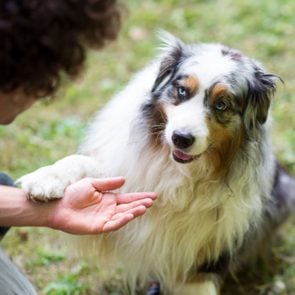10 Signs Your Dog Feels Neglected and Needs More TLC
Updated: Jul. 25, 2024

Does your canine cutie need a cuddle? Veterinarians point to the signs your dog feels neglected—and offer tips for giving your pooch more attention.
If you’re among the millions of Americans who own a dog, you may find it challenging to spend enough time with your furry best friend. And that can cause problems. Despite our best efforts, our dogs can sense when they’re getting only the leftovers of our attention. But what are the signs your dog feels neglected, and how much attention does it need from you?
“Dogs are individuals, so there isn’t a one-size-fits-all answer for how much attention they need,” says Rhiannon Koehler, DVM, a veterinarian at the Humane Society of Greater Kansas City. “Some dogs learn to self-entertain, others enjoy just sitting by you and some demand extended, undivided attention from you.”
As a veterinarian, I am well-versed in dog behavior and understand how dogs use body language, actions and noises to tell us what they want and need from us. By interpreting those signals, we can learn how our actions—from putting off puppy playtime during a busy workweek to leaving the home for long stretches of time—can affect our four-legged friends. Ahead, you’ll discover 10 signs your dog feels neglected, with insights from Dr. Koehler and myself about dogs’ need for attention and how to give them more.
Get Reader’s Digest’s Read Up newsletter for more pets, humor, travel, tech and fun facts all week long.
About the experts
|
Signs your dog feels neglected
Determining if your dog feels neglected takes a bit of detective work. Yes, some dog breeds are more affectionate and attention-seeking than others. And sure, there are common signs your pup needs attention. But like humans, dogs experience and express their feelings in a variety of ways.
That’s why you need to know your pooch, specifically. Consider the following signs your dog feels neglected in the context of its personality, the situation and any recent behavior or health changes.
It’s destroying your furniture
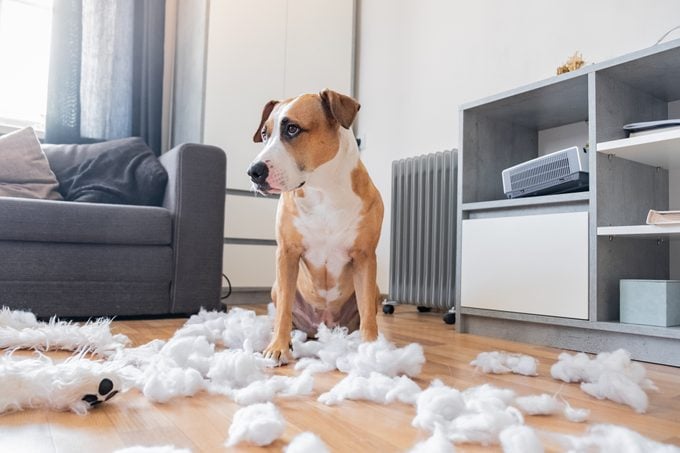
Chances are, you’ve been here before: After a long day at work, you’ve come home to find chewed furniture and doors that have been scratched during an attempted escape. Talk about a hard-to-ignore sign that something’s up with your pup! “Dogs that need more attention can be destructive to your home and themselves,” says Dr. Koehler.
Generally, she explains, dogs shouldn’t be left alone for more than four to six hours at a time. The longer they go solo, the likelier they are to feel neglected and act out. And that’s not just hazardous to your household belongings; your pup could hurt itself too. When dogs are crated and feeling neglected, Dr. Koehler says, they may chew on their crate door so much that they damage their teeth.
Destructive behavior isn’t always a sign of neglect, though. Dogs with separation anxiety can become destructive because they feel distressed when left alone. Other dogs may chew on your prized possessions simply because it’s fun.
If your typically well-behaved dog doesn’t have separation anxiety and is now tearing up your house, it may be telling you that it needs more of your attention.
It has bathroom accidents
When I was growing up, our dog would sometimes poop in the corner of the room when we left home in the evening for a family outing. Has something like this ever happened to you? It’s tempting to think your dog is heaping vengeance on you for being away from home for so long, but that’s probably not the case. Instead, your pup may feel neglected.
When dogs feel like they’re not getting enough attention, their anxiety may increase. That, in turn, may result in more frequent urination and defecation. Your pet may then have an accident in the house. Remember, dogs are not being spiteful but have an urgency to eliminate in your absence.
Of course, there’s another reasonable explanation for bathroom accidents: It might be that your dog simply couldn’t hold it any longer, she says. Dogs with medical conditions like kidney disease or urinary incontinence, in particular, may have more accidents. “If the bathroom accidents are new, take your dog to your veterinarian to rule out a medical condition,” Dr. Koehler advises.
And be mindful of how long you’re leaving your dog home alone—cutting down on its solo time will give it more opportunities for outdoor potty breaks and lessen or eliminate feelings of neglect.
It barks—a lot
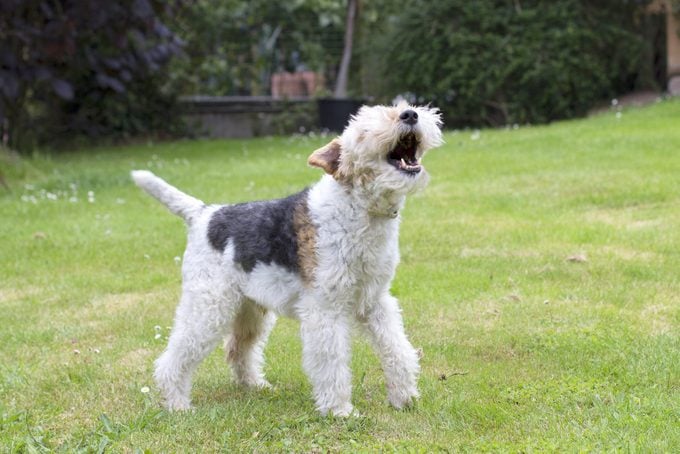
Barking is normal dog behavior and has several purposes, including expressing fear and asking for something. But if your dog is barking more than usual—and specifically at you, not the annoying squirrel outside—it may feel neglected and bark to get more attention from you. “Dogs know how to get your attention, and barking is definitely an effective strategy,” says Dr. Koehler.
She cautions that giving dogs attention when they bark could be a slippery slope. “If you always give your dog attention when they bark, you may unintentionally reinforce that barking has a positive outcome, and your dog may start to bark over little things, like asking for a treat,” she says.
Instead, give your dog more attention during the day, just not as a direct response to the barking. Spending more time with your dog can prevent future attention-seeking barking.
It’s whining and crying
Dogs have been hanging around humans for thousands of years, so they have a keen sense of what to do to get our undivided attention. But while most dog noises give us pause, whining and crying truly have a way of pulling at our heartstrings. When our pets use these sounds to beg for our attention, they may not stop until we give it to them.
Whining and crying could also indicate anxiety or pain, especially if these vocalizations persist despite extra attention. If that’s the case, your dog may need veterinary care to determine the underlying cause and relieve its symptoms.
It sleeps more than usual

Healthy, happy adult dogs sleep about 12 hours a day, so if that describes your pooch, there’s nothing to worry about. Is your four-legged friend snoozing the day (and night) away? “Some dogs that feel neglected may sleep more than usual,” says Dr. Koehler.
Our dogs rely on us for stimulation, from playtime, walks and cuddles to bones, toys and games. If you’re not paying attention to your dog and it gets bored, it can’t scroll social media or binge its favorite TV show. Without games or activities to keep it busy and active, a neglected dog may opt to curl up and sleep to pass the time. (You would too!)
If your dog is otherwise healthy yet chooses to sleep the day away, find different ways to give it attention, such as with interactive toys and more playtime, which will get their brain working and body moving.
It has gained weight
Canine obesity is a big problem (no pun intended). According to a 2022 survey from the Association for Pet Obesity Prevention, nearly 60% of dogs in the United States are either overweight or obese. Unfortunately, dogs that feel neglected may pack on extra pounds.
“Some dogs that are bored or neglected will eat more as a form of self-entertainment, particularly if they have free access to food,” says Dr. Koehler. If your dog is eating to cope with neglect but isn’t getting enough exercise, it will soon join the ranks of other overweight and obese dogs.
A good solution for both its obesity and attention needs? Increase the amount of exercise your furry friend gets each day. You’ll appreciate the weight loss that keeps your pup healthy, and it’ll appreciate hanging out with its human pal.
It doesn’t eat much

While some pups chow down for self-entertainment, other dogs eat less when they feel neglected. “Much like a person with depression, a dog that feels neglected often has changes to their appetite,” says Dr. Koehler.
Of course, a reduced appetite is also a symptom of many health conditions in dogs, such as digestive upset, so you may have to do some detective work with your veterinarian to determine why your dog isn’t eating much. If neglect is the reason, improving your dog’s mood by giving it more attention may help restore its appetite.
It’s less social
Dogs that feel neglected often don’t feel like being social. They may withdraw from family members and other pets and stop doing the things they used to enjoy, such as going out on long walks or playing with other dogs at the dog park.
To translate this behavior—and determine if it comes from a lack of attention—you need to know your pet. “Some dogs are naturally more introverted and self-sufficient,” Dr. Koehler says. If your dog is usually playful and outgoing but has started to prefer being alone, it may be feeling neglected. You’ll have to put in some time with your pup to see a change in its behavior.
It follows you around
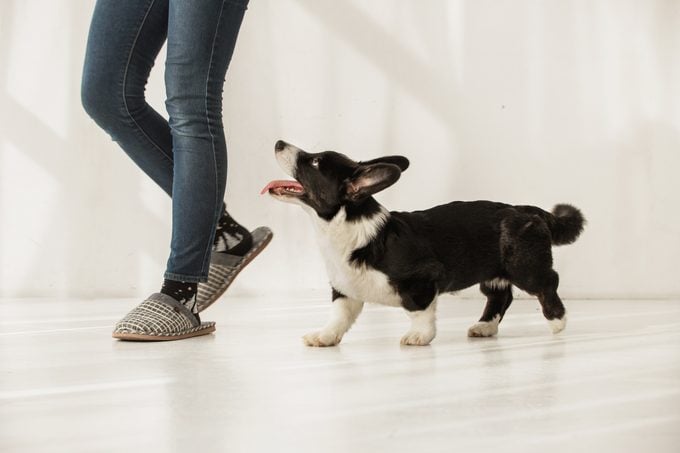
Has your dog become your shadow, following you wherever you go? It could be looking for more attention from you, determined to stay at your side no matter what. If your dog has suddenly started to stick to you like Velcro, consider giving it more of your undivided attention.
This behavior could also be a sign of separation anxiety, so you may want to talk to your vet if paying more attention to your pooch doesn’t stop it from shadowing you.
It shows signs of depression
“Unfortunately, we can’t ask our dogs how they feel,” says Dr. Koehler. But they can become depressed, and dogs that feel neglected may show signs of depression to indicate they aren’t getting enough attention.
Much like human depression, she explains, dog depression can have vague and nonspecific signs, such as a lack of interest in previously enjoyable activities and changes in eating and sleeping behaviors. Other depressed dogs may become clingier.
How to give your dog more attention
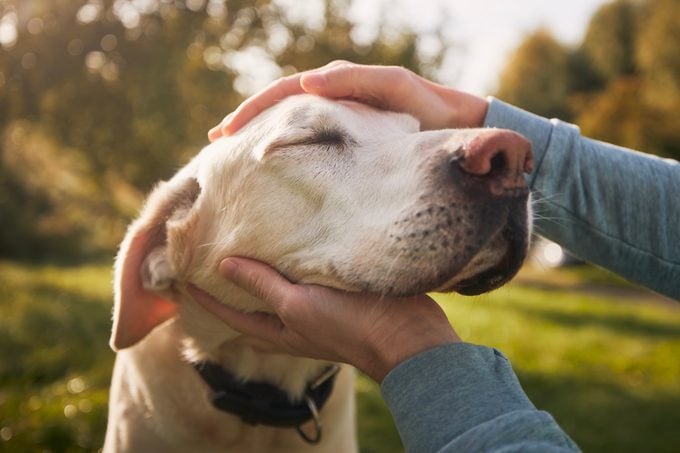
If your dog has made it loud and clear that it is feeling neglected, it’s time to work on giving your dog more attention. Here are some ways to make that happen:
- Schedule consistent, daily playtime.
- Give your dog mentally stimulating toys to keep it occupied when you can’t give it attention.
- Hire a dog sitter or dog walker to spend time with your dog during the day.
- Cuddle more with your dog on the couch.
Your dog needs your attention, but it doesn’t need it all in one big block of time. Any attention you give it throughout the day, such as walks around the neighborhood or a quick game of fetch, will go a long way toward keeping your dog from feeling neglected.
You may notice that these signs of neglect start to disappear as you give your dog more attention. However, if these signs persist despite the extra attention, schedule an appointment with your vet to determine if an underlying medical issue could be the cause.
Why trust us
At Reader’s Digest, we’re committed to producing high-quality content by writers with expertise and experience in their field in consultation with relevant, qualified experts. For this piece, JoAnna Pendergrass, DVM, tapped her experience as a veterinarian and journalist covering pets, and then Wailani Sung, MS, PhD, DVM, DACVB, a board-certified veterinary behaviorist who owns Bay Area Vet Behavior, gave it a rigorous review to ensure that all information is accurate and offers the best possible advice to readers. For this piece, we relied on reputable primary sources, including veterinarians and professional organizations, as well as our writer’s personal experience. We verified all facts and data and backed them with credible sourcing, and we will revisit them over time to ensure they remain accurate and up to date. Read more about our team, our contributors and our editorial policies.
Sources:
- Rhiannon Koehler, DVM, freelance medical writer and small-animal veterinarian at the Humane Society of Greater Kansas City; email interview, April 3, 2024
- Association for Pet Obesity Prevention: “2022 Pet Obesity Prevalence Survey”
- Journal of the American Veterinary Medical Association: “Review of epidemiological, pathological, genetic and epigenetic factors that may contribute to the development of separation anxiety in dogs”






















